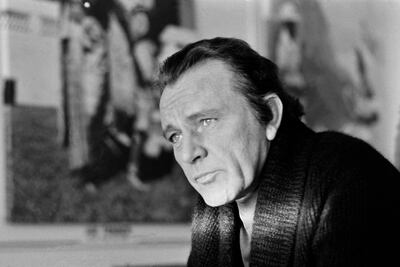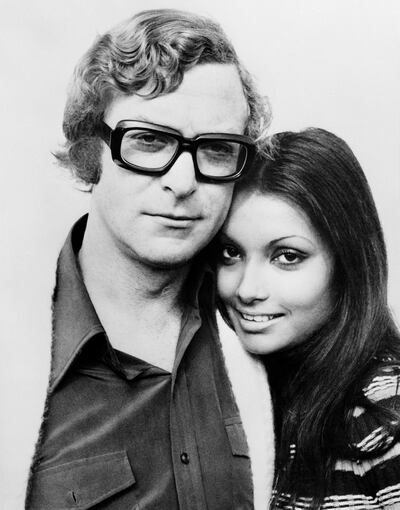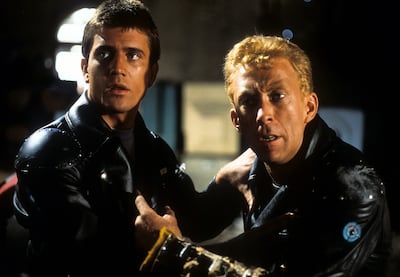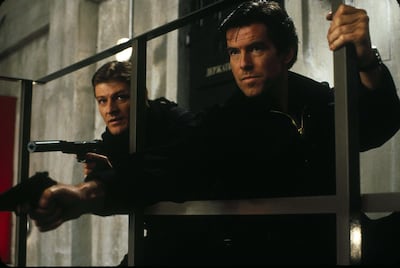As one of cinema and literature’s most popular characters, everything to do with James Bond is endlessly talked about.
While the debate continues over which actor will take on the role now that Daniel Craig has bowed out, Irish actor Liam Neeson has caused a stir after revealing he turned down the role.
Speaking to Rolling Stone, Neeson, 70, shared that he had been approached about playing 007 in the 1990s.
“I know the Broccolis. They looked at a bunch of actors,” Neeson said of the producing family behind the spy franchise. “Schindler’s List had come out and Barbara [Broccoli] had called me a couple of times to ask if I was interested, and I said: ‘Yes, I would be interested.’”
It wasn’t a bad screen test that lost Neeson the role, but rather his late wife, actress Natasha Richardson, who made the decision for him.
“My lovely wife, God rest her soul, said to me while we were shooting Nell down in the Carolinas: ‘Liam, I want to tell you something: If you play James Bond, we’re not getting married.’ She gave me a James Bond ultimatum and she meant it!”
Here, The National rounds up nine others who snubbed the role.
Richard Burton

The Welsh actor had long been on Bond creator Ian Fleming’s wish list for who he would like to play 007.
When the opportunity arose to turn his 1953 novel Casino Royale into a film, Fleming, according to the Evening Standard, wrote to a friend that he thought Burton “would be by far the best Bond".
Burton’s great-nephew Guy Masterson would later share that seven-time Oscar nominee Burton was unimpressed with the character, having already portrayed on-screen greats such as Alexander in 1956’s Alexander the Great and Jimmy Porter in 1959’s Look Back in Anger.
“Back then, in 1959, Bond was a new concept,” said Masterson. “Nobody had any idea it would be as big as it became. My uncle told me that he thought it was going to be just another movie.”
Cary Grant
If any movie star of the 1950s and '60s epitomised the cool suaveness Bond personified it was Cary Grant.
The British-born American actor had made his name in box office hits The Pride and the Passion, North by Northwest and To Catch a Thief and, according to the book Some Kind of Hero: The Remarkable Story of the James Bond Films, was a huge fan of Fleming’s books.
He had also been best man at Albert “Cubby” Broccoli’s 1959 wedding, the man who would go on to produce 16 Bond films.
By the time Bond came to big screen fruition, Grant was in his fifties and couldn’t commit to more than one film.
Sir Michael Caine

In 1967, after completing five Bond films, Sir Sean Connery quit the franchise (although he would return for 1971’s Diamonds Are Forever).
With the hunt on for a new 007, the focus turned to Sir Michael Caine. The British actor had already made a name for himself in 1964’s Zulu, as Harry Palmer in 1965’s The Ipcress File and as Alfie in the eponymous 1966 film.
Caine, however, had other ideas and, according to The Daily Express, considered himself too “ordinary” to portray 007.
James Brolin
While Bond is famously British, that didn’t stop producers from casting their net wider to consider American actors after Sir Roger Moore ended his four-movie contract with 1979’s Moonraker.
With Moore now negotiating on a film-by-film basis (he would go on to star in three more), Brolin’s name came up in casting discussions, having starred in 1973’s Westworld and 1979 hit The Amityville Horror.
The actor was considered for 1981’s For Your Eyes Only and screen-tested for 1983’s Octopussy. He was then offered the role, although that fell through when Moore decided to return.
“I literally came home to get all my stuff to live in England for a year,” Brolin told The Express. “I was really up for that.”
Burt Reynolds
While the American actor might not spring to mind in relation to Bond, Reynolds has spoken about how he sabotaged himself when it came to the role.
Considered hot Hollywood property after his turn as Lewis in 1972’s Deliverance, Reynolds told USA Today that when Albert Broccoli approached him about playing 007, he talked the producer out of hiring him, insisting the public wouldn’t accept an American portraying the spy.
“It was a stupid thing to say,” Reynolds said. “I could’ve done it and I could’ve done it well.”
Mel Gibson

American actor Mel Gibson was in contention for the role in the mid-1980s after 1979’s Mad Max and 1981’s Gallipoli had put him on the map as a box office star.
“I got offered the James Bond movies when I was like 26,” Gibson told movie website JoBlo. “And I did think about it, and I sort of turned it down ... because I thought, look what happened to poor Sean, he got stuck there for like three decades.”
Sam Neill
The New Zealand Jurassic Park actor told the Australian Broadcasting Corporation that Moore was in favour of him taking over the role when his tenure ended with 1985’s A View to a Kill.
Neill, along with Timothy Dalton and Pierce Brosnan, were the frontrunners to take over.
Producer Albert Broccoli decided on Brosnan, a choice that was put on the back burner when the Irish actor was held to his Remington Steele TV contract. Second-choice Dalton would go on to play Bond in two films.
“I wouldn’t have been any good,” Neill later told Den of Geeks, “and I wouldn’t have enjoyed it.”
Hugh Jackman
The Australian Les Miserables and X-Men star has spoken about being approached to audition for the role after Brosnan bowed out after four films.
Having started as Wolverine in 2000's X-Men, Jackman told Variety in 2017: “I was worried that between Bond and X-Men, I’d never have time to do different things.”
In what's believed to be a reference to Die Another Day’s much-derided invisible car, he said: “I just felt at the time that the scripts had become so unbelievable and crazy, and I felt like they needed to become grittier and real."
Sean Bean

The British actor auditioned for the role of Bond in 1994 during a time when there was confusion over whether Dalton would return for a third film following 1989’s License to Kill.
When it became clear Dalton was done, producers moved to Brosnan.
However, Bean had impressed casting directors with his screen test that he was offered the role of the traitorous Alec Trevelyan in 1995’s GoldenEye.










